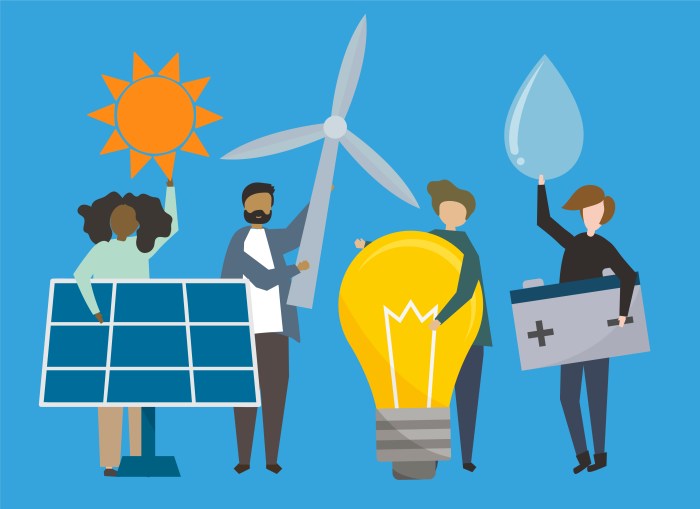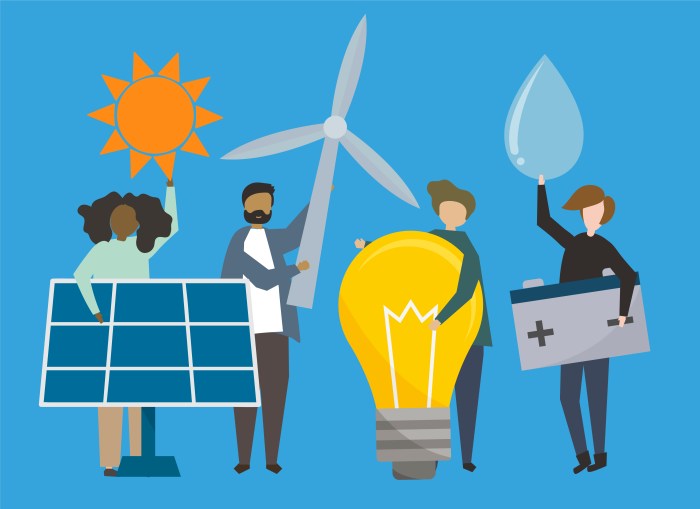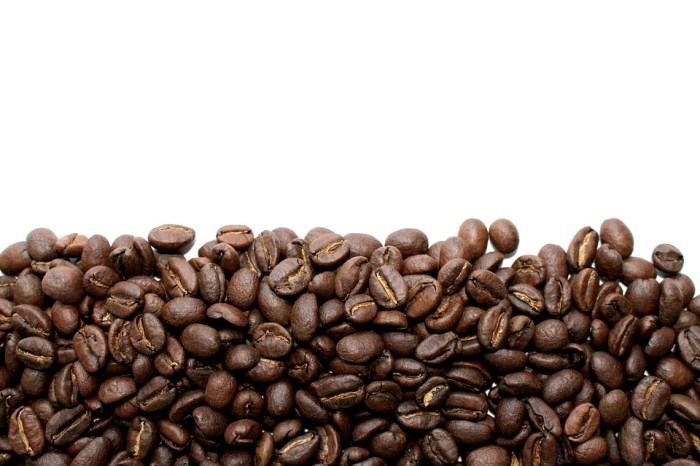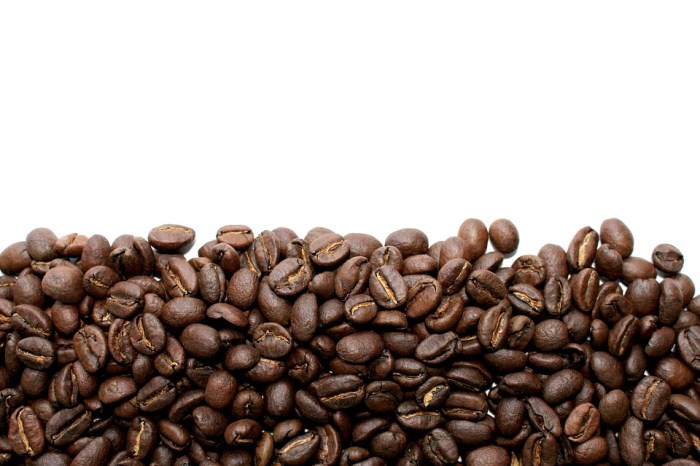How does a caffeine nap work? This intriguing question delves into the science behind the seemingly paradoxical practice of combining caffeine with a short sleep. We’ll explore the ideal timing, the physiological effects of caffeine, and the factors influencing nap quality. From understanding how caffeine interacts with your body to maximizing the benefits of this sleep strategy, this guide will equip you with the knowledge to make the most of a caffeine nap, or decide if it’s right for you.
A caffeine nap, while seemingly counterintuitive, can be a powerful tool for boosting alertness and cognitive function. By strategically timing your caffeine intake and nap duration, you can potentially enhance your performance and productivity. However, it’s crucial to understand the underlying science and potential drawbacks to utilize this technique effectively. This exploration will walk you through the science behind it, examining the impact of timing, environment, and individual factors.
Introduction to Caffeine Naps
A caffeine nap, a relatively recent addition to the world of power napping, is a short sleep period followed by a caffeine boost. It leverages the stimulating effects of caffeine to counteract the grogginess often associated with waking up after a short nap. Understanding how caffeine affects the body and the timing of caffeine consumption relative to the nap are crucial for maximizing the benefits and minimizing the potential downsides.
This approach is often employed to improve alertness and cognitive function, especially in situations requiring sustained mental focus.Caffeine, a central nervous system stimulant, works by blocking adenosine, a neurotransmitter that promotes sleepiness. By inhibiting adenosine, caffeine promotes wakefulness and enhances alertness. The body’s response to caffeine isn’t instantaneous, but rather develops over time. The peak effects of caffeine usually manifest between 30-60 minutes after consumption.
This knowledge is key to optimizing the caffeine nap experience.
Caffeine Nap Timeframes and Benefits
A typical caffeine nap lasts between 20 and 30 minutes. This timeframe is chosen to avoid the deeper stages of sleep, which can lead to grogginess upon awakening. A longer nap may lead to delayed reaction times and even the dreaded “sleep inertia.” The critical aspect is to strategically time the caffeine intake relative to the nap.
| Nap Duration | Caffeine Consumption Timing | Potential Benefits | Drawbacks |
|---|---|---|---|
| 20-30 minutes | Immediately after waking from the nap | Improved alertness, enhanced cognitive function, reduced sleepiness, and increased mental clarity. | Potential for jitters, anxiety, or insomnia if caffeine is consumed too late in the day. Overstimulation if the dose is too high. |
| 20-30 minutes | 30-45 minutes after waking from the nap | A slight delay in the caffeine effects, allowing a smoother transition into alertness. | May result in less immediate improvement in alertness compared to consuming caffeine immediately after waking from the nap. |
The table above summarizes the key factors of caffeine napping. Choosing the right duration and timing of caffeine consumption is crucial for optimizing the benefits and minimizing potential drawbacks. Individual responses to caffeine vary, so it’s essential to monitor your own body’s reaction.
The Science Behind Caffeine and Sleep
Caffeine, a ubiquitous stimulant, profoundly impacts our sleep-wake cycle. Understanding its interaction with our bodies’ natural processes is key to harnessing its potential, including for the short-term boost of a caffeine nap. This section delves into the scientific mechanisms behind caffeine’s effects, emphasizing its relationship with sleepiness and the body’s internal clock.Caffeine’s powerful effects stem from its ability to interfere with the body’s natural chemical messengers, particularly those related to sleep.
This interference alters our physiological state, making it crucial to understand the interplay between caffeine, sleep, and the circadian rhythm for optimal use.
Physiological Effects of Caffeine on the Central Nervous System
Caffeine’s primary action is on the central nervous system (CNS). It blocks adenosine receptors, a neurotransmitter that promotes sleepiness. By preventing adenosine from binding, caffeine effectively reduces feelings of drowsiness. This leads to increased alertness and focus. This stimulation is not without its drawbacks, as prolonged or excessive caffeine consumption can disrupt sleep patterns and contribute to anxiety.
Caffeine’s Impact on Adenosine
Adenosine is a crucial neurotransmitter that accumulates in the brain as the day progresses. This accumulation promotes feelings of sleepiness. Caffeine, structurally similar to adenosine, can bind to adenosine receptors in the brain. This binding prevents adenosine from binding, thereby reducing the signal for sleepiness. The result is a sustained alertness.
It’s important to note that caffeine’s effect is not permanent and eventually wears off.
Caffeine Absorption and its Effect on the Body
Caffeine absorption is relatively rapid, typically occurring within 30 to 60 minutes after ingestion. The rate of absorption varies depending on factors like food intake, metabolism, and individual sensitivity. Once absorbed, caffeine circulates throughout the body, affecting various organs and systems. The body’s metabolism gradually breaks down caffeine, with elimination taking several hours. This explains the duration of caffeine’s effects.
The Role of Circadian Rhythm in Caffeine Naps
The body’s internal clock, the circadian rhythm, plays a critical role in regulating sleep-wake cycles. Caffeine, while offering a temporary boost, can interfere with the circadian rhythm. A caffeine nap taken too close to the natural sleep cycle can disrupt the body’s internal clock, leading to difficulty falling asleep later. Understanding the circadian rhythm is key to timing caffeine naps for optimal effectiveness.
Comparison of Caffeine’s Effects with Other Stimulants
Caffeine’s effects are comparable to other stimulants like amphetamines, but differ in their mechanism and intensity. Amphetamines directly increase the release of neurotransmitters like dopamine and norepinephrine, leading to a more intense and potentially longer-lasting stimulation. Caffeine, however, primarily blocks adenosine, resulting in a milder but still noticeable effect.
Effects of Different Caffeine Doses on Sleep Stages
| Caffeine Dose (mg) | Potential Impact on Sleep Stages |
|---|---|
| 0-100 | Minimal to no impact on sleep stages, but may increase alertness. |
| 100-200 | Potentially moderate impact on sleep onset and duration. |
| 200+ | Significant impact on sleep stages, potentially leading to insomnia or disrupted sleep patterns. |
This table demonstrates the correlation between caffeine intake and potential disruption of sleep stages. Higher doses of caffeine are associated with greater disruptions to sleep quality and duration. It’s essential to be mindful of the dose and timing of caffeine consumption.
The Impact of Caffeine Timing on Nap Effectiveness
Getting the most out of a caffeine nap isn’t just about having caffeine; it’s about timing it perfectly. The delicate dance between caffeine consumption and nap duration dictates whether you’ll wake up refreshed or groggy. Understanding the optimal timing ensures your nap is a productivity booster, not a sleep-deprived setback.
Ever wondered how that caffeine nap actually works? It’s basically a short burst of alertness followed by a period of deep sleep. This can be tricky to time, and sometimes a caffeine nap can be more disruptive than helpful, especially when dealing with issues like implantation bleeding vs periods. Implantation bleeding vs periods can be confusing, but understanding the difference can help you decipher your body’s signals.
Ultimately, the best approach to a successful caffeine nap is finding the sweet spot between the desired alertness and a truly restorative sleep cycle.
Optimal Caffeine Consumption Time Before a Nap
The ideal time to consume caffeine before a nap is crucial for maximizing its alertness-boosting effects without disrupting sleep. Research suggests that consuming caffeine 30-60 minutes before a nap often produces the best results. This allows for the caffeine to reach its peak concentration in the bloodstream without inducing anxiety or interfering with sleep onset. If you consume caffeine closer to your nap, you might feel jittery or anxious.
If you wait too long, the caffeine might not be in your system when you’re ready for a nap.
Ideal Nap Time After Caffeine Consumption, How does a caffeine nap work
Timing your nap after caffeine consumption is equally important. A 20-30 minute nap is often cited as the sweet spot for maximizing alertness after a caffeine-induced boost. This short nap period allows for the beneficial effects of caffeine to be realized, yet prevents deep sleep, which might lead to grogginess upon waking. Napping longer than 30 minutes after caffeine intake might negate the positive effects and lead to a delayed awakening.
Consequences of Consuming Caffeine Too Close to Bedtime
Consuming caffeine too close to bedtime can significantly impact sleep quality and duration. Caffeine’s half-life, the time it takes for the body to eliminate half of the caffeine, is approximately 5 hours. This means that even if you consumed caffeine hours before bed, some of it may still be in your system, hindering your ability to fall asleep.
Avoid consuming caffeine within 4-6 hours of bedtime to minimize this interference. Individuals sensitive to caffeine might need to extend this timeframe.
Caffeine’s Half-Life and Nap Timing
Caffeine’s half-life plays a significant role in determining the optimal timing of your nap. As caffeine gradually diminishes in the body, the effects on alertness lessen. Considering this half-life, timing your nap appropriately ensures that the caffeine’s stimulating effects are still present but haven’t waned to the point of diminishing returns. The graph below illustrates this dynamic relationship.
Relationship Between Caffeine Intake Time and Nap Effectiveness
| Caffeine Intake Time (Before Nap) | Ideal Nap Time (After Caffeine Intake) | Potential Impact |
|---|---|---|
| 30-60 minutes | 20-30 minutes | Improved alertness and wakefulness |
| 1-2 hours | 20-30 minutes | Reduced alertness, but still possible benefits |
| Less than 30 minutes | 20-30 minutes | Potential jitters and anxiety |
| More than 2 hours | 20-30 minutes | Reduced caffeine effect; may not improve alertness |
This chart illustrates the relationship between caffeine intake and nap effectiveness. Note that individual responses to caffeine vary, and these are general guidelines. Experimentation might be necessary to find the ideal timing that works best for you.
Factors Influencing Nap Quality
Caffeine naps, while offering a quick boost, aren’t a magic bullet. Their effectiveness hinges on various factors, from your pre-nap state to the environment you choose. Understanding these nuances allows you to optimize your caffeine nap for maximum productivity and minimal side effects.
Sleep Deprivation’s Impact
Chronic sleep deprivation significantly hinders the effectiveness of a caffeine nap. When you’re already sleep-deprived, your body is desperately seeking restorative sleep. A caffeine nap might offer a temporary reprieve, but it’s unlikely to fully compensate for the sleep debt. The body’s natural sleep-wake cycle (circadian rhythm) is disrupted, leading to reduced alertness and cognitive function in the long term.
A well-rested individual benefits more from a caffeine nap than someone who is chronically sleep-deprived.
Stress and Mental State
Stress and anxiety directly impact the quality of a caffeine nap. A stressed mind often struggles to relax and fall into a restful state, even if the nap itself is short. Stress hormones like cortisol interfere with the body’s ability to recover, preventing deep relaxation and potentially leading to a feeling of restlessness and agitation after waking up.
The mental state before a nap plays a crucial role in its effectiveness.
Environmental Influence
The environment profoundly influences the quality of your nap. A quiet, dark, and cool space promotes relaxation and sleep. Conversely, a noisy, bright, or overly warm environment can disrupt your sleep cycle, rendering the nap less restorative and less effective. The ideal environment is conducive to both sleep and wakefulness.
Nap Length and Caffeine’s Effect
The length of the nap significantly impacts the effect of the caffeine. A short nap (around 20-30 minutes) is more likely to produce the desired alertness boost from caffeine without causing grogginess upon waking. Longer naps, while providing a more restful experience, might interfere with the timing of caffeine’s peak alertness effect. The relationship between nap length and caffeine’s effect needs careful consideration.
Examples of Conducive Environments
A quiet library corner with ambient lighting, a shaded outdoor spot under a tree, or a designated nap room at work all offer opportunities for a productive caffeine nap. A quiet room with comfortable bedding, a dark room, or a dimly lit space with soft lighting can also work well. These examples provide a variety of environments that support the goal of a good nap.
Ever wondered how a caffeine nap actually works? It’s a bit like a controlled crash, leveraging caffeine’s stimulating effect to wake you up after a short period of sleep. This phenomenon is intriguing, but recent advancements in cancer treatments, like the enhertu breast cancer treatment trial , offer a similar, albeit far more complex, approach to achieving desired outcomes.
The way the body responds to both caffeine and targeted therapies for cancer is fascinating, showing how different systems can function in interesting ways.
| Factor | Impact on Nap | Examples |
|---|---|---|
| Sleep Deprivation | Reduces nap effectiveness; doesn’t fully compensate for sleep debt. | Pulling an all-nighter before a caffeine nap. |
| Stress Levels | Interferes with relaxation; leads to restlessness. | Dealing with a deadline or a personal crisis. |
| Environment | Impacts relaxation and sleep quality. | A noisy office, a bright sunlit room, a hot room. |
| Nap Length | Affects caffeine’s effect; short naps are best for alertness. | A 20-minute power nap versus a 90-minute nap. |
Potential Benefits and Drawbacks of Caffeine Naps
Caffeine naps can be a powerful tool for boosting alertness and cognitive function, but they come with potential downsides. Understanding these benefits and drawbacks is crucial for using caffeine naps effectively and safely. This section explores the advantages and disadvantages of incorporating caffeine naps into your daily routine.Caffeine naps, strategically timed with the inclusion of caffeine, can offer a unique opportunity to enhance cognitive function, but they also present potential risks.
Careful consideration of the interplay between caffeine and sleep patterns is essential for maximizing the benefits and minimizing the drawbacks.
Ever wondered how a caffeine nap actually works? It’s all about that sweet spot between alertness and relaxation. You’re essentially tricking your brain into a short, restorative sleep cycle, but the caffeine kick afterwards keeps you from feeling groggy. This is similar to the process of getting rid of hiccups, where a sudden change in your body’s state, like swallowing, can disrupt the involuntary spasms.
For a deeper dive into dealing with those pesky hiccups, check out this helpful guide on how to get rid of hiccups. Ultimately, the goal is to achieve a state of equilibrium where your body can settle into a more balanced rhythm, whether you’re aiming for a productive nap or a hiccup-free existence.
Potential Benefits for Cognitive Performance
Caffeine’s stimulating effect, combined with the restorative power of a short nap, can lead to significant improvements in cognitive performance. Studies have shown that caffeine naps can enhance alertness, memory, and reaction time. This is particularly beneficial for individuals experiencing fatigue or needing a quick mental boost, such as students cramming for exams or professionals facing demanding deadlines.
The combined effect of caffeine and sleep can lead to improved focus and concentration, allowing individuals to perform tasks more efficiently.
Potential Drawbacks: Anxiety and Jitters
A common drawback associated with caffeine naps is the potential for anxiety or jitters. The stimulating nature of caffeine, when combined with the temporary sleep deprivation that often precedes the nap, can trigger a heightened physiological response. This can manifest as feelings of restlessness, nervousness, or even mild anxiety. Individuals sensitive to caffeine may experience these effects more acutely.
Careful monitoring of your individual response to caffeine is crucial.
Potential Risks of Overuse and Dependence
Overuse of caffeine naps can lead to a reliance on them to function. This dependence can lead to a disrupted sleep cycle, making it harder to fall asleep naturally at night. Individuals who rely heavily on caffeine naps may find it increasingly difficult to function without them, leading to a dependence on the substance for daily alertness. Consistency in sleep patterns is vital for optimal health.
Consequences of Disrupting Sleep Schedules
Disrupting your sleep schedule with caffeine naps, especially if they’re not timed correctly, can have negative impacts on your overall sleep quality. The body needs consistent sleep patterns for optimal physical and mental restoration. Chronic sleep deprivation can negatively affect mood, concentration, and overall well-being. It is crucial to ensure your sleep schedule is maintained.
Comparison with Other Alertness-Improving Methods
Caffeine naps offer a unique approach to improving alertness compared to other methods. While techniques like exercise or hydration can contribute to improved alertness, caffeine naps offer a targeted approach for cognitive enhancement. However, each method has its limitations and optimal use cases. For instance, while exercise promotes long-term alertness, caffeine naps offer immediate, short-term benefits. Consider the context and desired outcome when choosing a method.
Potential Benefits and Drawbacks Table
| Potential Benefit | Potential Drawback |
|---|---|
| Improved cognitive function (e.g., alertness, memory, reaction time) | Anxiety or jitters |
| Increased focus and concentration | Disrupted sleep schedule |
| Enhanced performance in tasks requiring sustained attention | Potential for dependence on caffeine naps |
| Quick mental boost | Adverse effects for caffeine-sensitive individuals |
| Potentially beneficial for specific scenarios (e.g., students studying, professionals under pressure) | Interference with natural sleep patterns if not used strategically |
Alternative Strategies for Improving Alertness: How Does A Caffeine Nap Work
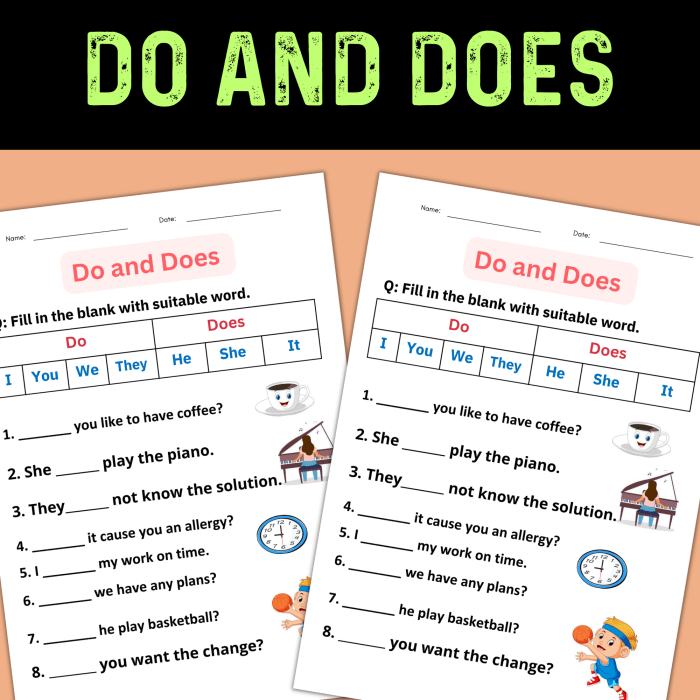
Caffeine naps, while offering a temporary boost, aren’t always the best solution. Long-term sleep deprivation can lead to serious health consequences, so exploring sustainable methods for improving alertness is crucial. These strategies focus on addressing the root causes of fatigue, promoting healthy sleep habits, and optimizing cognitive function without resorting to caffeine.
Prioritizing Sleep
Adequate sleep is fundamental to maintaining alertness and cognitive function. Insufficient sleep directly impacts mood, concentration, and reaction time. Establishing a consistent sleep schedule, creating a relaxing bedtime routine, and optimizing the sleep environment can significantly improve sleep quality.
- Consistent Sleep Schedule: Going to bed and waking up at the same time each day, even on weekends, regulates your body’s natural sleep-wake cycle (circadian rhythm). This consistency improves sleep quality and makes it easier to fall asleep and wake up feeling refreshed. For example, a consistent schedule allows your body to anticipate sleep, promoting a more restful night.
- Relaxing Bedtime Routine: Engage in calming activities before bed, such as reading, taking a warm bath, or listening to soothing music. Avoid screen time for at least an hour before sleep, as the blue light emitted from electronic devices can interfere with melatonin production, the hormone crucial for regulating sleep.
- Optimize Sleep Environment: Ensure your bedroom is dark, quiet, and cool. Invest in blackout curtains, earplugs, or a white noise machine to minimize distractions. A comfortable mattress and pillows are also essential for a good night’s sleep. A dark, quiet, and cool bedroom environment can significantly improve sleep quality.
Improving Diet and Exercise
Nourishing your body with a balanced diet and incorporating regular exercise can significantly impact your energy levels and alertness.
- Balanced Diet: Consume a diet rich in fruits, vegetables, and whole grains. Limit processed foods, sugary drinks, and excessive caffeine and alcohol intake. A balanced diet provides the necessary nutrients for optimal brain function and energy levels. For instance, a diet rich in complex carbohydrates can provide sustained energy throughout the day, whereas sugary snacks lead to energy crashes.
- Regular Exercise: Physical activity increases blood flow to the brain, promoting alertness and cognitive function. Aim for at least 30 minutes of moderate-intensity exercise most days of the week. Exercise not only improves physical health but also boosts mood and reduces stress, both of which contribute to alertness.
Mindfulness and Stress Management
Chronic stress can negatively impact sleep quality and alertness. Practicing mindfulness and stress-reduction techniques can help manage stress effectively.
- Mindfulness Techniques: Mindfulness exercises, such as meditation and deep breathing, can help reduce stress and promote relaxation. Regular practice can improve focus and concentration, crucial for maintaining alertness throughout the day. Mindfulness techniques, such as meditation, can help manage stress, leading to improved alertness and focus.
- Stress-Reducing Activities: Engage in activities that you find relaxing and enjoyable, such as spending time in nature, listening to music, or pursuing hobbies. These activities can help reduce stress levels and improve overall well-being, leading to enhanced alertness.
Cognitive Enhancement Strategies
Certain cognitive techniques can help optimize brain function and improve alertness.
- Regular Mental Stimulation: Engage in activities that challenge your mind, such as learning a new language, playing a musical instrument, or solving puzzles. This mental stimulation helps maintain cognitive sharpness and improve alertness.
- Cognitive Behavioral Therapy (CBT): CBT can help identify and modify negative thought patterns that contribute to stress and anxiety, both of which can affect alertness. This therapy can improve sleep quality and reduce stress levels, leading to improved alertness.
Case Studies and Examples
Caffeine naps, when strategically implemented, can significantly enhance alertness and cognitive function. However, like any sleep intervention, their effectiveness hinges on individual factors and the specific context. Understanding how different individuals experience caffeine naps through real-world examples illuminates their potential benefits and drawbacks.The following case studies illustrate how individuals have successfully utilized caffeine naps to improve performance and how misapplication can lead to negative outcomes.
These examples showcase the critical role of timing, duration, and individual response in optimizing the benefits of this unique sleep strategy.
Effective Use of Caffeine Naps in Specific Tasks
Many professionals, particularly those in demanding fields like medicine, law enforcement, and aviation, have reported using caffeine naps to maintain peak performance.
“A surgeon reported a significant improvement in concentration and reaction time after a 20-minute caffeine nap. This allowed them to maintain focus and accuracy throughout a long surgical procedure.”
“A long-haul trucker found that a 15-minute caffeine nap, taken with a cup of coffee 10 minutes before, improved alertness and reduced the risk of accidents during their long drives. This allowed for a significant reduction in driving errors and improved overall safety.”
These examples highlight how short, timed caffeine naps can be effective for improving cognitive function in high-stakes tasks that require sustained alertness. The key is to understand individual responses and adjust the nap duration and timing accordingly.
The Detrimental Impact of Caffeine Naps
While caffeine naps can be highly beneficial, they can also be detrimental if not used correctly.
“A student attempting to cram for an exam found that a caffeine nap, taken too close to bedtime, disrupted their normal sleep schedule and resulted in poor exam performance due to sleep deprivation the following night.”
“An individual who regularly consumed a high dose of caffeine found that caffeine naps were ineffective due to an already elevated caffeine level in their system.”
These cases underscore the importance of understanding individual tolerances and avoiding excessive caffeine consumption before a nap, and the need for appropriate timing relative to the individual’s sleep schedule. A well-timed and carefully dosed caffeine nap can be beneficial, but an ill-timed or poorly managed one can be counterproductive.
Factors Contributing to the Success or Failure of Caffeine Naps
The success or failure of a caffeine nap is dependent on various factors. Understanding these factors can lead to more effective strategies.
- Individual sensitivity to caffeine: Some individuals are more sensitive to caffeine than others. This sensitivity can affect the effectiveness of a caffeine nap.
- Timing of the nap relative to the individual’s circadian rhythm: Napping at the wrong time can disrupt one’s natural sleep-wake cycle, potentially counteracting the desired benefits of the nap.
- Duration of the nap: The optimal nap duration for maximizing alertness varies between individuals.
- Caffeine dosage: A proper balance between caffeine consumption and the nap duration is crucial for optimizing the nap’s effectiveness.
Final Review

In conclusion, a caffeine nap can be a valuable tool for improving alertness and cognitive performance, but it’s crucial to understand the science behind it. Optimizing the timing of your caffeine intake and nap duration, and considering individual factors like sleep deprivation and stress, are key to maximizing its benefits. Understanding the potential drawbacks, such as anxiety or disrupted sleep schedules, is also essential.
This exploration of the science behind caffeine naps provides valuable insights, allowing you to make informed decisions about incorporating this strategy into your routine. Hopefully, this discussion has offered clarity on when and how caffeine naps can work for you.

